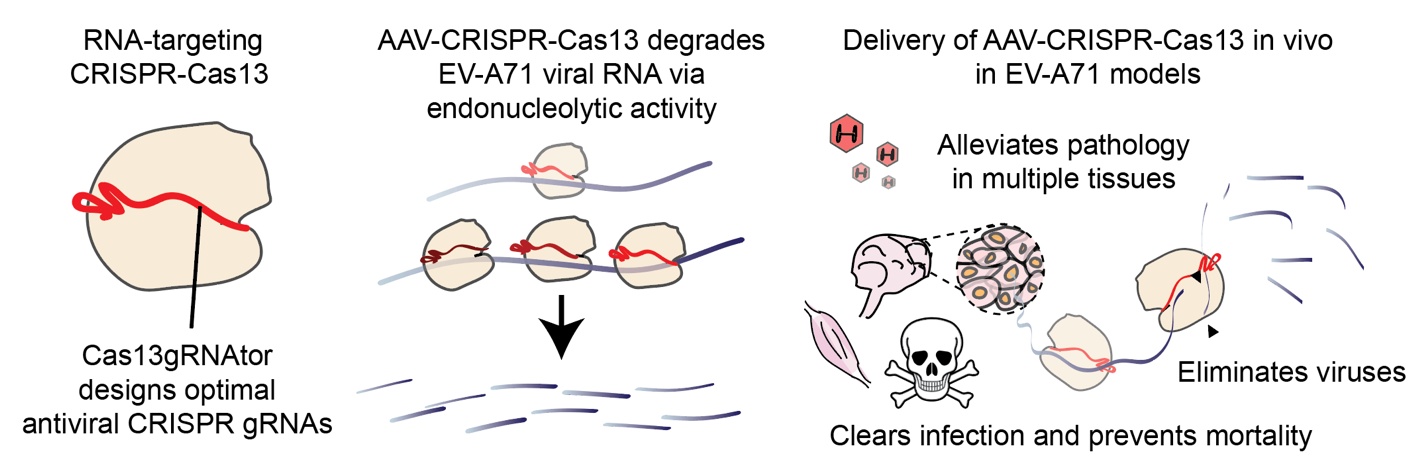Singapore scientists develop gene-editing technology that eliminates EV-A71 RNA viruses
Published: 03 Aug 2023

Singapore scientists have developed a CRISPR-Cas13 therapeutic against EV-A71, the RNA virus that causes hand, foot, and mouth disease.
A team of scientists from the Yong Loo Lin School of Medicine, National University of Singapore (NUS Medicine) and A*STAR’s Genome Institute of Singapore (GIS) has made an important breakthrough in the fight against RNA viruses that cause human diseases and pandemics.
Their research shows that the CRISPR-Cas13 editor delivered by adeno-associated virus (AAV) can directly target and eliminate RNA viruses in laboratory models. AAV are delivery vehicles derived from small viruses that naturally infect humans. They are clinically approved for use in gene therapy drugs which are used to treat diseases such as spinal muscular atrophy, Duchenne muscular dystrophy, and haemophilia.
The EV-A71 virus is the cause of the hand, foot, and mouth disease, and in severe cases, can lead to nervous system disease and death. To treat the viral infection, the team turned to CRISPR-Cas13, an RNA-editing technology that alters RNA in a cell, and opens therapeutic avenues to a wide range of diseases that are untreatable by the Nobel Prize-winning CRISPR-Cas9, which edits DNA.

A newly developed antiviral CRISPR-Cas13 therapeutics
CRISPR-Cas13 is programmed by guide RNAs (gRNAs) to target specific RNA sequences. Upon binding to these RNA sequences, the CRISPR-Cas13 cuts the RNA target into pieces, inactivating the RNA. CRISPR-Cas13 could also be utilised for RNA-editing, where a specific RNA sequence is changed to another sequence within the cell.
In this recent work, the team of scientists first developed the Cas13gRNAtor computational programme to design CRISPR gRNAs that cut viral RNA across different viral strains. They show that CRISPR-Cas13 treatment potently reduces viral burden, with less than 0.1% of the viruses remaining in previously infected cells.
Importantly, the research findings show that the AAV-CRISPR-Cas13 therapy clears the EV-A71 infection and prevents organ damage and mortality.
These findings demonstrate a therapeutic development pipeline for antiviral AAV-CRISPR-Cas13 against potentially deadly RNA virus infections. Further therapeutic development could bring this technology towards treating human RNA viruses in the clinic.
This researchwas published on 28 June 2023, in eBioMedicine, part of The Lancet Discovery Science.
Associate Professor Justin Chu from NUS Medicine’s Department of Microbiology and Immunology, and Infectious Diseases Translational Research Programme added, “This amazing study has helped to unlock the new frontiers in anti-viral strategies by using AAV-CRISPR-Cas13 to combat human enteroviruses, paving the way for potential therapeutics against viral diseases.”
Please click here for the media release.


